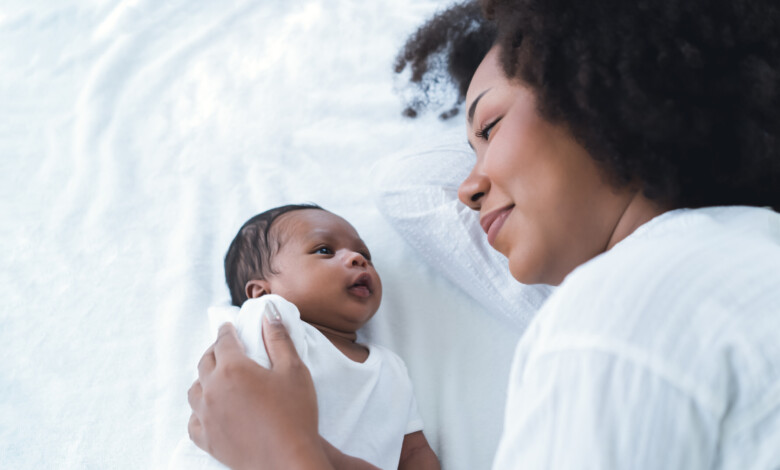
As the world observes Maternal Mental Health Awareness Month this May, health experts are calling for urgent action to address the often-overlooked mental health struggles of mothers during and after pregnancy.
Maternal mental health refers to the emotional, psychological wellbeing of a woman during pregnancy and after childbirth – commonly known as postpartum depression.
The theme, “Your Voice, Your Strength,” emphasizes the power of speaking up—yet many women, like Sharon, suffer in silence.
Sharon, a mother in her mid-thirties, initially dismissed her emotional turmoil as “just baby blues.”
Despite a family history of mental illness—including a relative hospitalized for postpartum depression (PPD)—she wasn’t warned about red flags.
“None of the doctor’s questionnaires fit what I was feeling,” she recalls.
“They asked if I was sleeping too much, but I wasn’t sleeping at all.”
For eight months, Sharon’s cries for help were minimized with “You just need to relax”, and her marital strain overshadowed her mental health. It took two years before she felt a true bond with her son.
“My mother still will say to this day, ‘I feel guilty that I didn’t step in’ or ‘I didn’t know you were suffering,’” sharon said.
A global crisis: By the numbers
Dr. Nuwagaba Simon, Psychiatrist, Norvik Hospital, outlines key signs of PPD:
‘’Postpartum psychosis requires immediate medical attention since there is an increased risk of suicide and risk of harm to the baby. Treatment will usually include hospitalization.” Dr Nuwagaba warns.
“Treatment with psychotherapy or antidepressants is very effective alongside other kinds of medication. The best help a parent or biological mother can have is to find support and ask for help from friends, family or partner’’ he adds.
However, he advises that being realistic about after birth expectations for the mother and her baby, limiting visitors at home after childbirth, asking for help thus letting others know how they can help you, sleeping or resting when the baby sleeps, exercises like taking a walk, keeping in touch with family and friends, fostering a partnership relationship among others can fend off the problem.
An Islamic perspective
Sheikhat Radhia Namakula the Secretary for Women and Children Affairs, Uganda Muslim Supreme Council (UMSC), says that having a baby is a life-changing experience.
“It’s normal to have feelings of worry or doubt, especially if you are a first-time parent,’’ she says.
Islam recognizes postpartum depression as a mental health concern and encourages seeking help, including medical treatment and spiritual support.
She says Islamic teachings emphasize the importance of compassion, empathy, and support from family and community members.
“We expect the woman to go back to her parents home for assistance because this is a period that she needs to be around elders to give her positive energy and help her out with the help for her to recover properly,’’ she added.
Shiekhat Radhia advises Muslim men to find time for their pregnant women and assist them in every step until the baby is delivered and through the postpartum period for a healthier family.






